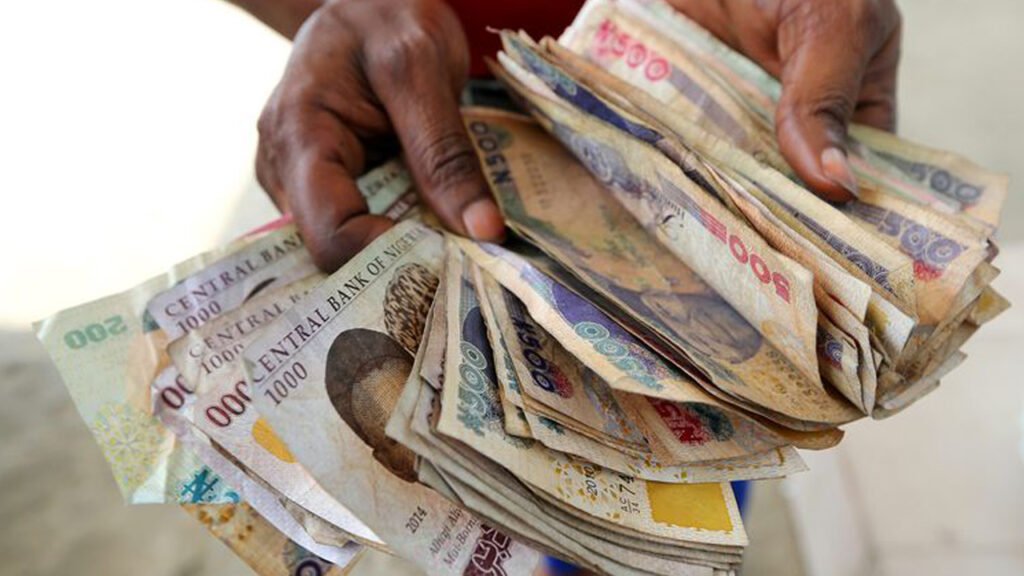Nigeria’s annual inflation rate eased to 21.88 per cent in July from 22.22 per cent in June 2025, the National Bureau of Statistics (NBS) said on Friday.
The statistics office said the July 2025 headline inflation rate showed a decrease of 0.34 per cent compared to the June 2025 headline inflation rate.
Inflation indicators compare prices of goods and services in 12 months. A decline does not necessarily imply a reduction in prices; instead, it shows the rate of price increase had fallen compared to previous months.
On a year-on-year basis, the bureau said the headline inflation rate was 11.52 per cent lower than the rate recorded in July 2024 (33.40 per cent).
This, it said, shows that the headline inflation rate (year-on-year basis) decreased in July 2025 compared to the same month in the preceding year (i.e., July 2024), though with a different base year, November 2009 = 100.
The NBS said on a month-on-month basis, the headline inflation rate in July 2025 was 1.99 per cent, which was 0.31 per cent higher than the rate recorded in June 2025 (1.68 per cent).
“This means that in July 2025, the rate of increase in the average price level was higher than the rate of increase in the average price level in June 2025,” the NBS said.
According to the report, the food inflation rate in July 2025 was 22.74 per cent on a year-on-year basis. This was 16.79 per cent points lower compared to the rate recorded in July 2024 (39.53 per cent).
The persistent price surge over the past two years has had devastating effects, with many farms and businesses forced to close, and agricultural producers scaling back output due to insecurity and unpredictable weather conditions in rural areas.
In response to the crisis, President Bola Tinubu declared a state of emergency on food insecurity in July 2023, aiming to combat rising food costs. However, despite this effort, food inflation continued to soar.
Breakdown
In its inflation report Friday, the NBS said the contributions of items on the divisional year-on-year level to the increase in the headline index are food & non-alcoholic beverages (8.75 per cent), restaurants and accommodation services (2.83 per cent), transport (2.33 per cent), housing, water, electricity, gas & other fuel (1.84 per cent), education services (1.36 per cent), health (1.33 per cent), clothing & footwear (1.10 per cent).
Others are information and communication (0.72 per cent), personal care, social protection, and miscellaneous goods and services (0.72 per cent), furnishing, household equipment, and routine household maintenance (0.65 per cent), insurance and financial services (0.10 per cent), alcoholic beverage, tobacco and narcotics (0.08 per cent) and recreation, sport and culture (0.07 per cent).
The NBS explained that the Consumer Price Index (CPI) rose to 125.9 in July 2025, reflecting a 2.5-point increase from the preceding month (123.4).
It added that the percentage change in the average CPI for the twelve months ending July 2025 over the average for the previous twelve-month period was 25.65 per cent, showing a 5.11 per cent decrease compared to 30.76 per cent recorded in July 2024.
Food inflation
The NBS said the significant decline in the annual food inflation figure is technically due to the change in the base year.
On a month-on-month basis, it said the food inflation rate in July 2025 was 3.12 per cent, down by 0.14 per cent compared to June 2025 (3.25 per cent).
It noted that the decrease can be attributed to the rate of decrease in the average prices of vegetable oil, bean (white), rice local, maize flour, Guinea corn (sorghum), wheat flour, millet whole grain, etc.
“The average annual rate of Food inflation for the twelve months ending July 2025 over the previous twelve-month average was 26.97 per cent, which was 9.39 per cent points lower compared to the average annual rate of change recorded in July 2024 (36.36 per cent),” it said.
READ ALSO: SPECIAL REPORT: Food Inflation worsens child malnutrition crisis in northern Nigeria
The NBS said in July 2025, food inflation on a Year-on-Year basis was highest in Borno (55.56 per cent), Osun (29.10 per cent), Ebonyi (29.06 per cent), while Katsina (6.61 per cent), Adamawa (9.90 per cent), and Zamfara (14.72 per cent) recorded the slowest rise in food inflation on a year-on-year basis.
“On a month-on-month basis, however, July 2025 food inflation was highest in Borno (10.89 per cent), Kano (10.86 per cent), and Sokoto (7.43 per cent), while Zamfara (-6.00 per cent), Bauchi (-2.18 per cent) and Abia (-1.06 per cent), recorded decline in food inflation on a month-on-month basis,” it said.
Read the full article here


